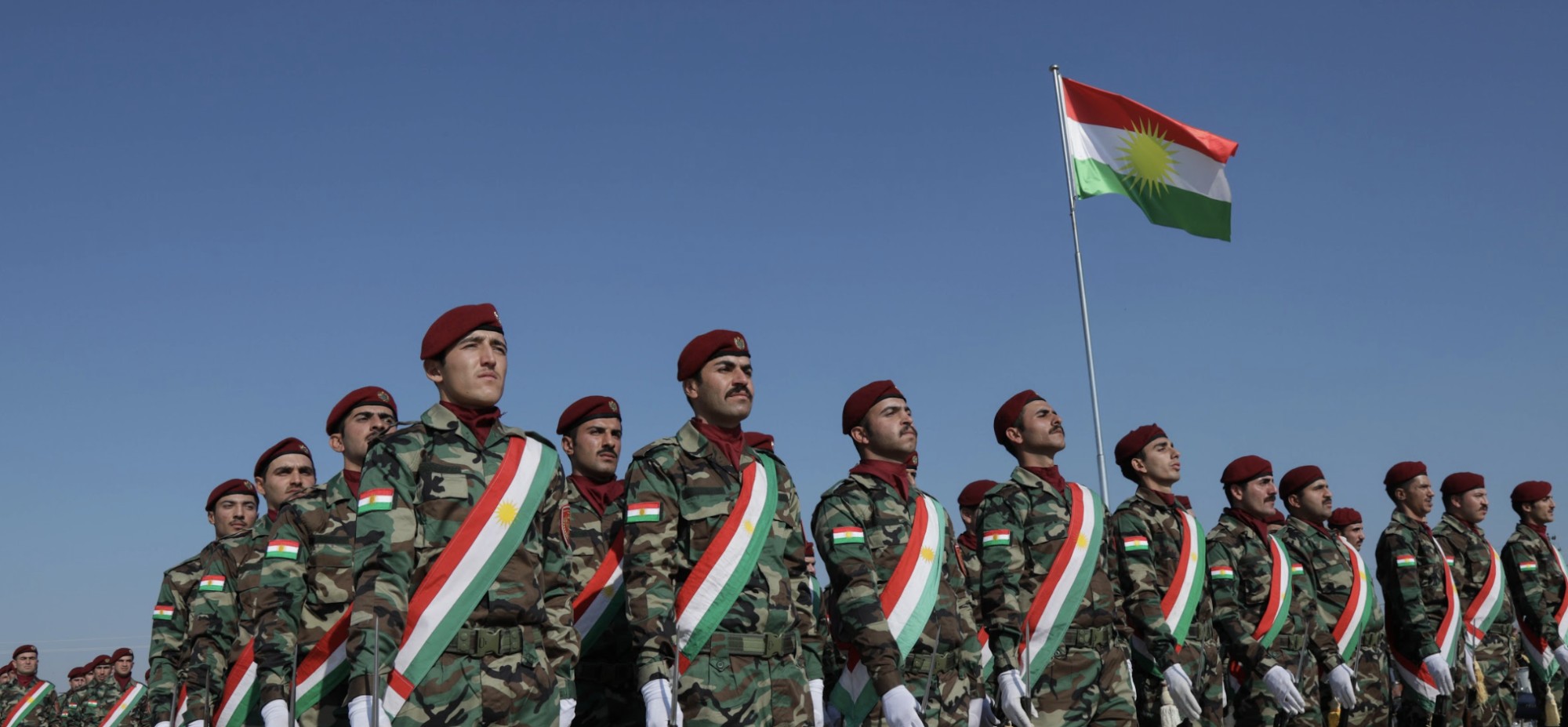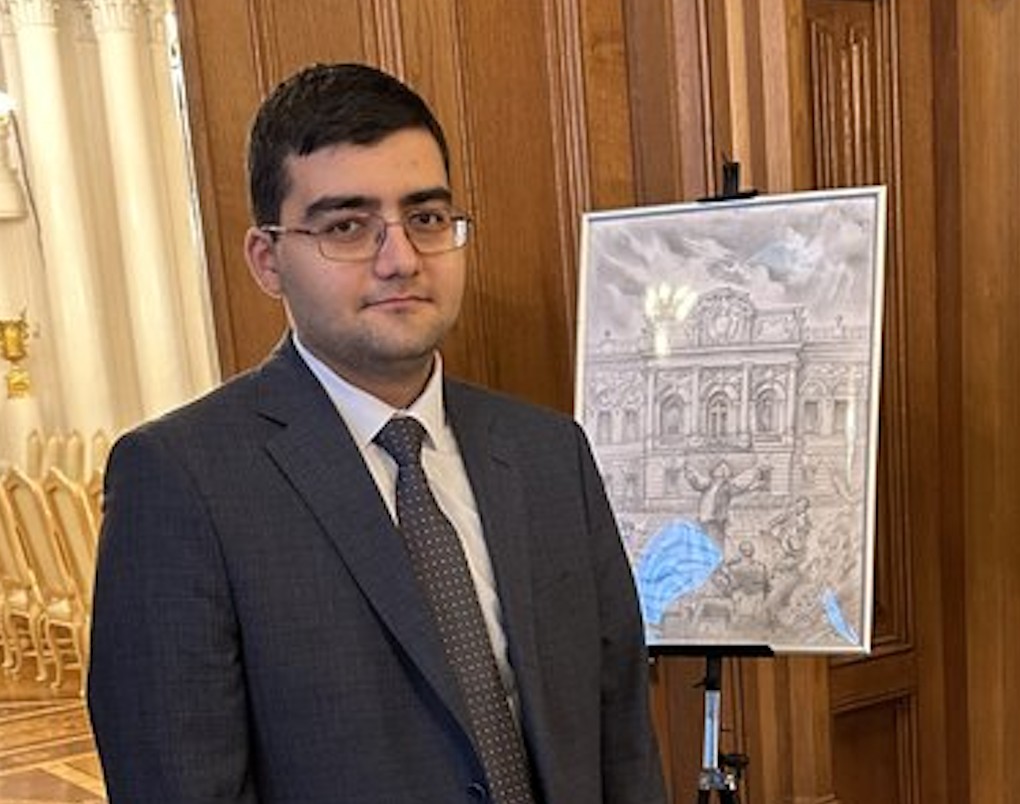On March 19, German Deputy Foreign Minister and Minister of State Tobias Lindner paid a visit to the Kurdistan Region, and reiterated Germany’s steadfast support of the Kurdistan Region and peshmerga forces.
During a meeting with the Kurdistan Regional Government (KRG) Prime Minister Masrour Barzani, Minister Lindner discussed the importance of upholding Iraq’s federal system and safeguarding the constitutional status of the Kurdistan Region, as stated in a readout provided by the KRG.
In a statement released on March 18, the Political Bureau of the Kurdistan Democratic Party (KDP) announced that they would boycott the Kurdistan Region’s parliamentary elections.
“We consider it in the interest of our people and country that our party does not endorse unconstitutional decisions and an imposed system outside the will of people of the Kurdistan Region and its constitutional institutions and not participate in an election that is illegal and unconstitutional and conducted under an imposed system,” the KDP said.
Read More: Kurdish Judge Withdraws from Federal Supreme Court to Protest Recent Rulings against Kurdistan
The KDP decision to boycott the elections came after rulings by the Federal Supreme Court of Iraq that have undermined the institutions of the Kurdistan Region and eliminated quota seats for minorities within the Region. As a result of these rulings, Kurdish judge Dr. Abdul Rahman Suleiman Zebari withdrew from the Federal Supreme Court on March 12.
Frank exchange with @tobiaslindner today.
— Masrour Barzani (@masrourbarzani) March 19, 2024
As I explained, we have long advocated for free and fair elections through an electoral law that is just and ensures representation for all the people, groups and components of the Kurdistan Region. pic.twitter.com/mjldPeRalS
Prime Minister Barzani underlined that the KRG has always been in favor of holding elections.
“As I explained, we have long advocated for free and fair elections through an electoral law that is just and ensures representation for all the people, groups and components of the Kurdistan Region,” Prime Minister Barzani said in a post on X.
Prime Minister Barzani added that the Kurdish people will not compromise on their rights despite facing pressure through political, military, economic, and legal means.
Today PM @masrourbarzani received Deputy FM @tobiaslindner to talk about bilateral relations and future cooperation. They also exchanged views on the current situation in the region as well as KRI’s security challenges and relations with central Iraq. 1/2 pic.twitter.com/5rrafVbdTt
— German Consulate Erbil (@GermanyInKRI) March 19, 2024
The Consulate General of Germany in Erbil in a post on X added that Minister Lindner and Prime Minister Barzani exchanged views on the current situation in the Kurdistan Region, as well as security challenges and relations with Baghdad.
“In addition, upcoming elections in the Kurdistan Region of Iraq and KDP’s decision to not take part were discussed. State Minister Lindner underlined the critical importance for KRI citizens to elect their representatives in the framework of free and fair elections,” the German Consulate General stated.
Situation of IDPs
The meeting also involved discussions of the situation in the internally displaced person (IDP) and refugee camps in the Kurdistan Region.
IDP camp closures and migration issues were among the topics raised with Minister @RayberAhmed. @tobiaslindner commended the #KRG on its commitment to ensuring informed, safe, voluntary and dignified returns or a successful integration into the host communities. pic.twitter.com/qllTkAr5X8
— German Consulate Erbil (@GermanyInKRI) March 19, 2024
The Kurdistan Region currently hosts over 900,000 displaced individuals and refugees, but Baghdad wants to close down all IDP camps by the end of July 2024.
However, KRG officials have emphasized that they will not forcibly return IDPs to their areas of origin.
During the meeting, both Prime Minister Barzani and Minister Lindner agreed on the need to facilitate the voluntary return of camp residents to their original homes.
In a separate meeting, Minister Lindner met with Yezidi activists to discuss the situations of Yezidis in Iraq.
German support
Germany has supported the peshmerga forces in the fight against ISIS by providing training and equipment since 2014. Furthermore, Germany has backed the Peshmerga Reform Project, alongside the United States, the UK, and the Netherlands.
Germany has also provided economic, development, and humanitarian aid to the Region, and the German Parliament has recognized the atrocities committed by ISIS against the Yezidis as genocide.
Germany previously condemned Iran’s ballistic missile attacks on the Kurdistan Region, such as the attack on Erbil that killed four civilians on January 15, 2024.

